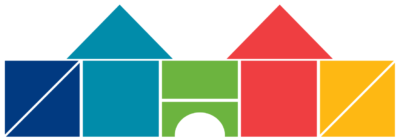Mathematics & Numeracy
What is Maths & Numeracy?
In Early Years, numeracy and mathematical thinking encompasses many different elements, including: recognition of numerical symbols, verbalising numbers, and being able to recognise shapes. This involves multiple skills, such as: understanding numbers, counting, problem solving, measuring, sorting, patterning, planning, and understanding of money and time.
Notably, Maths and Numeracy doesn’t simply refer to the ability to count, rather, it is about developing number sense and creativity of thought that enable children to understand everyday activities and interact with the world around them.
Why is Maths & Numeracy important?
Maths & Numeracy are important aspects of everyday life. They help people to make sense of the world around them and manage their lives, enabling them to model real-life situations, build connections, and develop the ability to make informed predictions and decisions.
Being numerate helps individuals to function responsibly and contribute effectively to society. It increases opportunities within the world of work and establishes a foundation which can be built upon through life-long learning. Learning mathematics gives children access to the wider curriculum and the opportunity to pursue further studies and interests.
Therefore, it is important that Early Years educators provide rich, meaningful contexts and opportunities for children to develop a range of Maths & Numeracy skills.
How can I support Maths & Numeracy development?
Early Maths & Numeracy are closely interlinked with enquiry and creativity and are best supported through provision of practical, meaningful contexts for children that enable them to make sense of the world around them. Given that numeracy concepts are applicable throughout all areas of life, numeracy should be embedded throughout the curriculum and early learning environment.
Children should be encouraged to play with numbers and have fun investigating and experimenting with quantity. A variety of open-ended and structured materials should be provided that encourage exploration, reasoning through enquiry, trial and error, problem solving, and opportunity to compare and contrast a variety of objects using mathematical language.
Additionally, learning can be enhanced by practitioners who use mathematical language when facilitating children’s experiences.
Maths & Numeracy Links & Documentation

